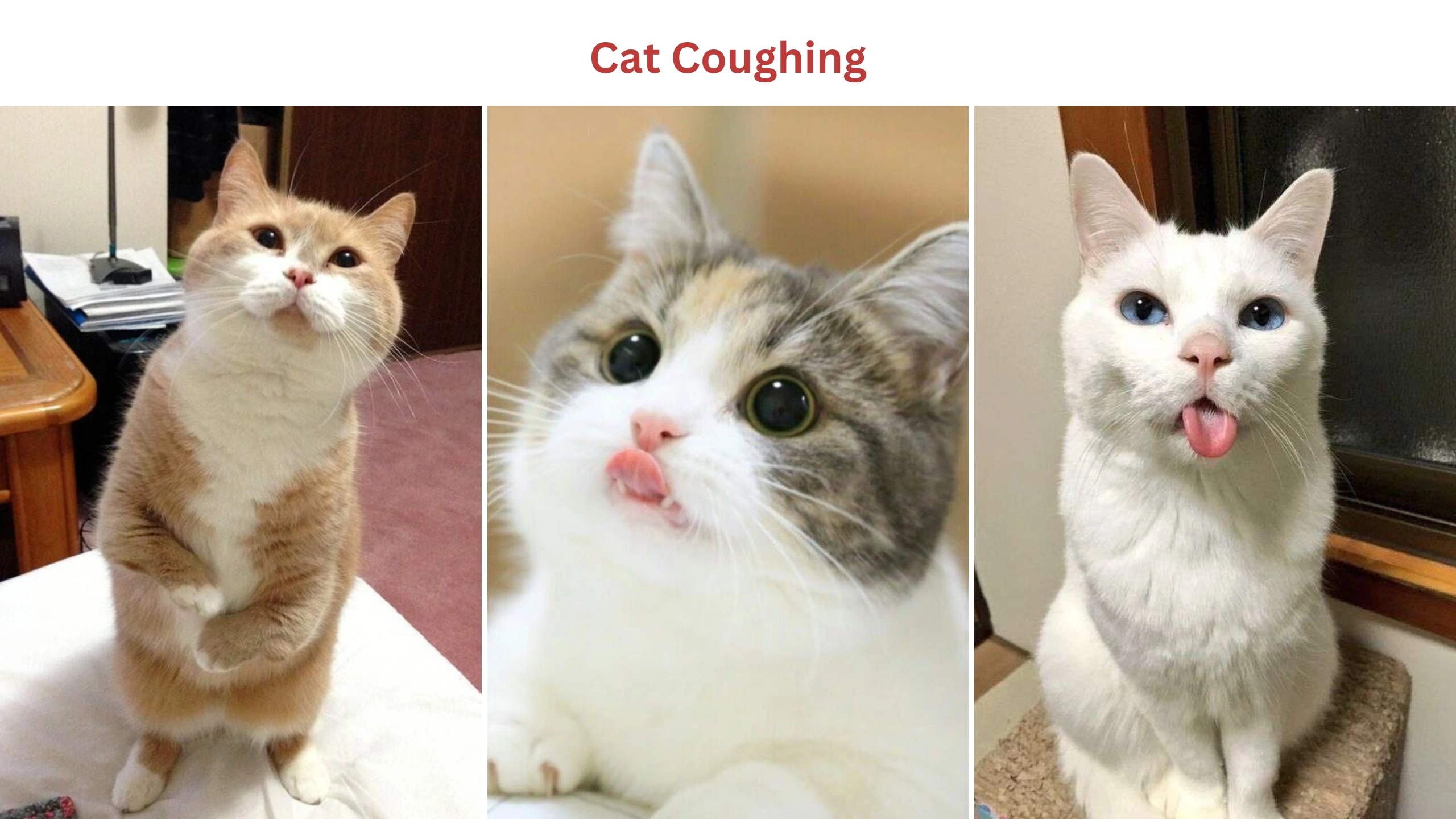Last Updated on February 11, 2024 by Aftab Tariq
Cat coughing can be a problematic issue for many cat owners. When you notice your cats coughing, paying attention to their respiratory health is essential. Coughing may signal problems in their airways, bronchi, trachea, or even the larynx, which can be reasons for concern.
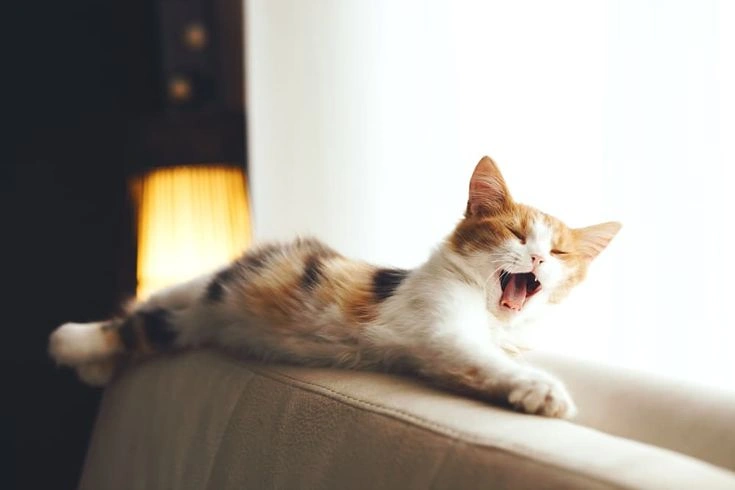
Booking an appointment with a veterinarian for a proper diagnosis and treatment plan is crucial. The veterinarian will examine your cat’s body to identify the cause of the coughing, as it could be due to various factors.
Cats with coughing symptoms may also exhibit other related symptoms, such as sneezing or excessive mucus from the nose and mouth. Identifying the underlying issue is essential for your cat’s recovery.
Does kennel Cough Spread from Dogs to Cats?
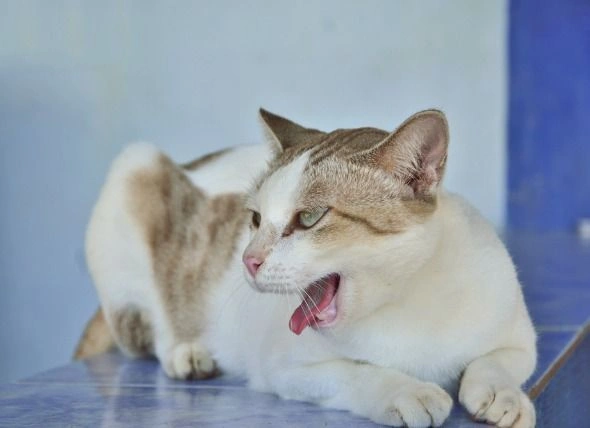
Whether Kennel Cough, a contagious respiratory infection, spreads from dogs to cats is important for pet owners. Kennel Cough, often caused by a combination of Bordetella bronchiseptica bacteria and other pathogens like canine coronavirus, para influenza virus, and adenovirus type 2, primarily affects dogs.
However, there’s limited information on whether cats can contract it from dogs. It’s crucial to note that while cats may not show typical Kennel Cough symptoms like coughing and nasal discharge, they can still carry and spread some of these pathogens to other cats or dogs, acting as asymptomatic carriers.
What’s Causing of My Cat Coughing?
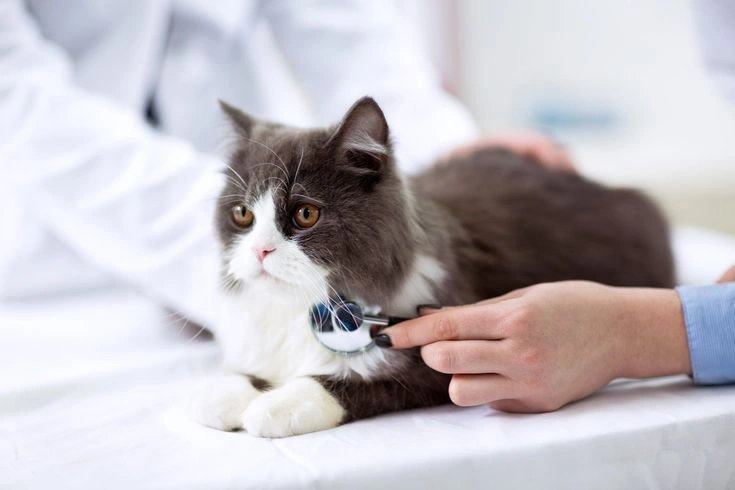
Cat coughing can be a concern for pet owners. If you’ve recently changed your cat’s litter to a dusty one and noticed coughing during litter box time, that might be the cause.
Cats can also cough from inhaling irritants, like secondhand smoke. Knowing these common reasons can help you keep your cat’s respiratory health in check. Symptoms of cat cough. Other typical reasons for cats to cough include the following:
Symptoms of Cat Cough
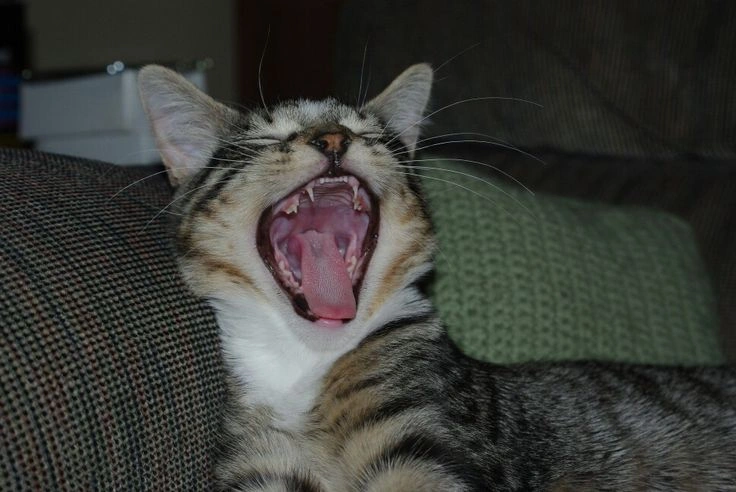
“Coughing in cats is typically an indication of an inflammatory issue with the lower respiratory system, particularly bronchitis.”
So, if your cat is coughing, it’s often because of inflammation in their lower breathing system. It’s like having a cold for them. Rarely, it could be from a chest tumor, but heart issues don’t typically make them cough.
If the trouble is higher up, like in the nose or throat, that can also lead to coughing. Think of it like a tickle causing discomfort. But don’t worry too much, most of the time it’s just a little irritation causing the cough.
Cat coughing and wheezing: Wheezing is one of the most characteristic symptoms of asthma in cats and is often seen along with coughing, labored breathing, fast breathing, or breathing with the mouth open.
Cat coughing and sneezing: For instance, a coughing and sneezing pattern in a cat often indicates an upper respiratory illness in cats. Infection of the nasal passages causes symptoms such as cat sneezing and a runny or stuffy nose. However, since part of the discharge runs back into the throat, it also causes a cough.
Cat coughing but no hairball: If a ‘cat coughing up hairball‘ leads to vomiting, you’re probably not dealing with a typical cough. Since the hairball is expelled from the digestive system and not the respiratory tract, it may appear as if your cat is coughing. However, in reality, they are choking or retching instead.
What Should I Do if My Cat Starts Hacking up Blood?
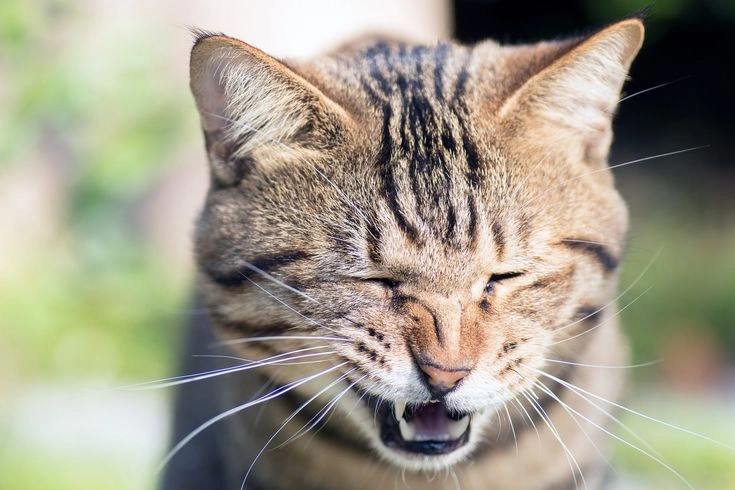
Cat coughing up blood is a distressing symptom that, even in an otherwise healthy cat, indicates a potentially life-threatening condition requiring immediate veterinary attention.
If you observe your cat displaying the concerning behavior of coughing up blood, it is crucial to contact your veterinarian as soon as possible. All the following are potential causes of this alarming manifestation in cats
Distressing events
Malignant tumors that have spread to the blood vessels
Infections of a severe nature
The ingestion of toxins that interfere with the natural coagulation of blood
Cat Coughing Treatment
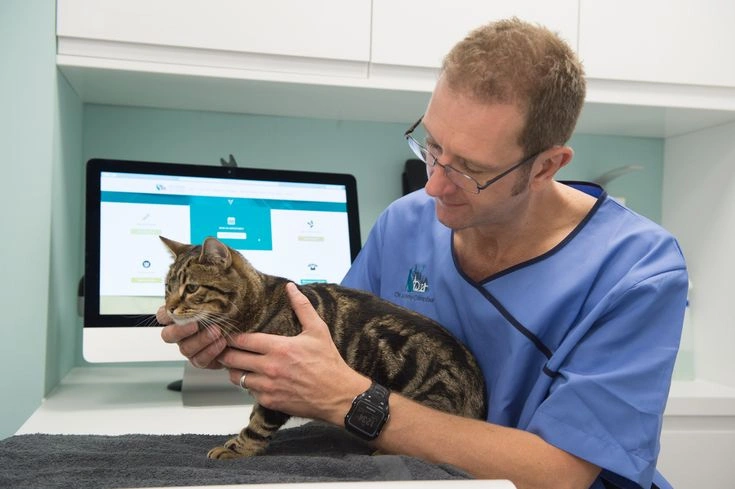
Differentiating Cats With Wet and Dry Cough

Differentiating between cats with wet and dry coughs can be challenging for pet parents. While both types of cough may raise concerns, veterinarians are trained to identify key distinctions and diagnose accurately.
Wet coughs in cats often involve the production of mucus or phlegm, indicating the presence of an infection, bacteria, or viruses in the respiratory tract. These coughs usually respond to irritants or materials in the lungs or airways.
“Knowing if a cat coughs wet or dry is like reading music notes. Vets are like experts who understand the health tune of our furry pals.”
On the other hand, dry coughs in cats are often associated with conditions like asthma or cancer and are characterized by a lack of mucus production. To determine the cause of a cat’s cough, veterinarians rely on a thorough examination, health history, and various tests.
Understanding the difference between these two types of coughs is crucial for ensuring the best possible care for your feline companion’s health.
Frequently Asked Questions
What is a Cat Cough Home Remedy?
Why Is My Cat Coughing With Tongue Out?
I am a dedicated content writer with more than five years of experience, particularly skilled in the art of storytelling. My writing journey commenced during my college years, where I pursued journalism and unearthed my talent for creating captivating narratives.

